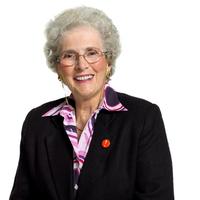
Snyder Institute for Chronic Diseases
With a boost from UCalgary’s innovation ecosystem, a new COVID-19 test could improve health outcomes in populations far and wide
Precision testing in the palm of your hand
Imagine if you could simply spit on a stick and minutes later discover whether or not you had COVID-19.
OK, so it may not be a stick, but the handheld, diagnostic cartridge that Dr. Dylan Pillai’s lab and its spin-off company, Illucidx, have been toiling on is, indeed, the size of your palm. And it’s almost as simple and as fast as a pregnancy test. Here’s how it works: You take a nose or throat swab, smear it onto a skinny, microfluidic cartridge and pop that into a toaster-like contraption at a pharmacy and presto! — within minutes, you have the results.
“That’s the dream,” says Pillai, MD, PhD, research lead and member of the Snyder Institute for Chronic Diseases and the Alberta Children’s Hospital Research Institute at the Cumming School of Medicine. One of the many pivots his eight-person lab and Illucidx have taken this year was to adapt a version of this cartridge to be used as a rapid COVID-19 test. The cartridge was originally intended for use in a massive trial to test for malaria amongst pregnant women in Ethiopia but Pillai and his team recognized the immense potential of pivoting the technology to help in the COVID-19 fight.
The new technology is already in use; Illucidx’s platform technology was one of several types of tests used by the 52,000 Albertans who were screened in the International Border Testing Pilot Program that accelerated the quarantine timeline for travellers arriving at Calgary International Airport.
Precision testing made accessible
“We use a chemistry called loop mediated amplification (LAMP),” explains Cody Doolan, MSc’20, CEO of Illucidx. LAMP detects the viral genetic material from a nasopharyngeal (nose/throat) swab or saliva.
Unlike other antigen tests, LAMP’s level of detection is ultra-sensitive and über-specific — and it does not require expensive laboratory equipment to be seen. By tweaking the chemistry involved, the hardware could be used for sexually transmitted infections, strep throat, or the next pandemic. With such a flexible platform and LAMP’s ability to adapt to clinical needs or market fluctuations, it’s less expensive to operate, which translates to more people being tested.
Describing Illucidx as a social enterprise, Pillai is emphatic that this diagnostic testing technology be used to serve some public-health good, which is precisely where his original interest lay in testing pregnant women for malaria in low- and middle-income countries.
“Those were our roots,” agrees Doolan, who was previously a graduate student in Pillai’s lab. “The question we have always asked ourselves has been: how can we improve health outcomes in neglected populations? And, with COVID, it’s much the same: how do we provide useful diagnostic tools that will improve health outcomes and save costs?”
That brand of socially conscious, outside-the-box thinking is in the Snyder Institute’s DNA, so to speak — no surprise, considering its philanthropic roots. A visionary gift from Joan Snyder in 2008 helped position the Institute at the forefront of infectious disease research. When the COVID-19 pandemic hit, its researchers were again breaking ground.
The Institute is home to a highly specialized lab — one of just a few in Canada — that enables scientists to study the complete life cycle of the virus. Over the past year, Institute members have been tapped to research and implement countermeasures to mitigate the spread of COVID-19; to improve detection, diagnosis and treatment; and to study how the virus affects and is transmitted by children.

Before spinning out the research into Illucidx, Cody Doolan (right) was a graduate student in Dr. Dylan Pillai’s lab
Philanthropy can also feed into the concept of fundraising . . . supporting the work, and maybe promoting this public/private partnership, and building it out. I think social entrepreneurship lends itself well to potential philanthropy.
Dr. Dylan Pillai
Research lead and member of the Snyder Institute
Innovation, powered by philanthropy
That culture of philanthropy extends beyond the lab, creating infrastructure and programming that supports research-intensive companies, like Illucidx.
“Being part of the University of Calgary’s expert advisory program with the Life Sciences Innovation Hub has helped enormously by putting us in contact with a huge network,” explains a grateful Doolan. “From experts in regulatory issues and business development to how to create successful sales funnels . . . we’ve developed a very strong network. But, of course, we need to keep testing and growing.”
Nodding in agreement is Pillai, adding: “This year has certainly pushed us out of our comfort zone into areas and spaces we don’t always feel easy in. We don’t necessarily always know what, exactly, we’re doing. You could say we’ve been pushing the envelope — and that’s been exciting.”
In order to advance to the next phase of testing, more funding is needed. One potential source is UCalgary’s UCeed Health Fund, for which Illucidx has applied. If the startup receives the financial boost it needs, they will move into several more prototype iterations before it is deemed ready for the production line.
“‘Angel investment’ is one source of raising capital for a company like this,” says Pillai. “But I’m hoping that philanthropy can also feed into the concept of fundraising . . . supporting the work, and maybe promoting this public/private partnership, and building it out. I think social entrepreneurship lends itself well to potential philanthropy.”
“We’re seeing cuts to the university — huge cuts. So, we have to be creative and look for other sources of revenue,” he adds. “I’m a big fan of spinning off companies and losing some of that ivory-tower mentality. Whether it be just entrepreneurship or social entrepreneurship, I think philanthropy can support this paradigm in some way.”
Indeed, philanthropy already plays a critical role in UCalgary’s innovation ecosystem, which includes donor-supported programs and spaces such as the Life Sciences Innovation Hub, Creative Destruction Lab — Rockies, the Hunter Hub for Entrepreneurial Thinking and UCeed.
As for a dream, Pillai says: “That’s simple . . . it’s a DNA malaria test that’s rolled out in Africa, approved by the WHO [World Health Organization] and is widely available, for less than $5 a test.”
Adds Doolan: “Diagnostics play an important role in diagnosing a disease properly. If you don’t have good diagnostics, it’s really hard to treat a disease.”
Isn’t that the truth?

The Cumming School of Medicine's Snyder Institute for Chronic Diseases, named in honour of visionary donor Joan Snyder, is at the forefront of chronic disease research
What Giving Gives Me
Philanthropy is more than money, it’s people helping people. The community coming together, each giving what they can and supporting each other, just as my parents taught me. Better a booster than a knocker, be.

Joan Snyder
The Snyder Institute for Chronic Diseases was named in honour of a transformative gift from Snyder
Related stories
Sunny ways
Precision medicine research is transforming the way we diagnose and treat disease — and giving hope to Albertans like Terry Morey, who has long exceeded his initial 18-month prognosis.
Youthful ambition
Scholarships and bursaries give students both the financial means and confidence to reach their full potential — students like Carolina Romeo, who went from being UCalgary’s youngest-ever student-athlete to a leader in Canada’s energy sector.


